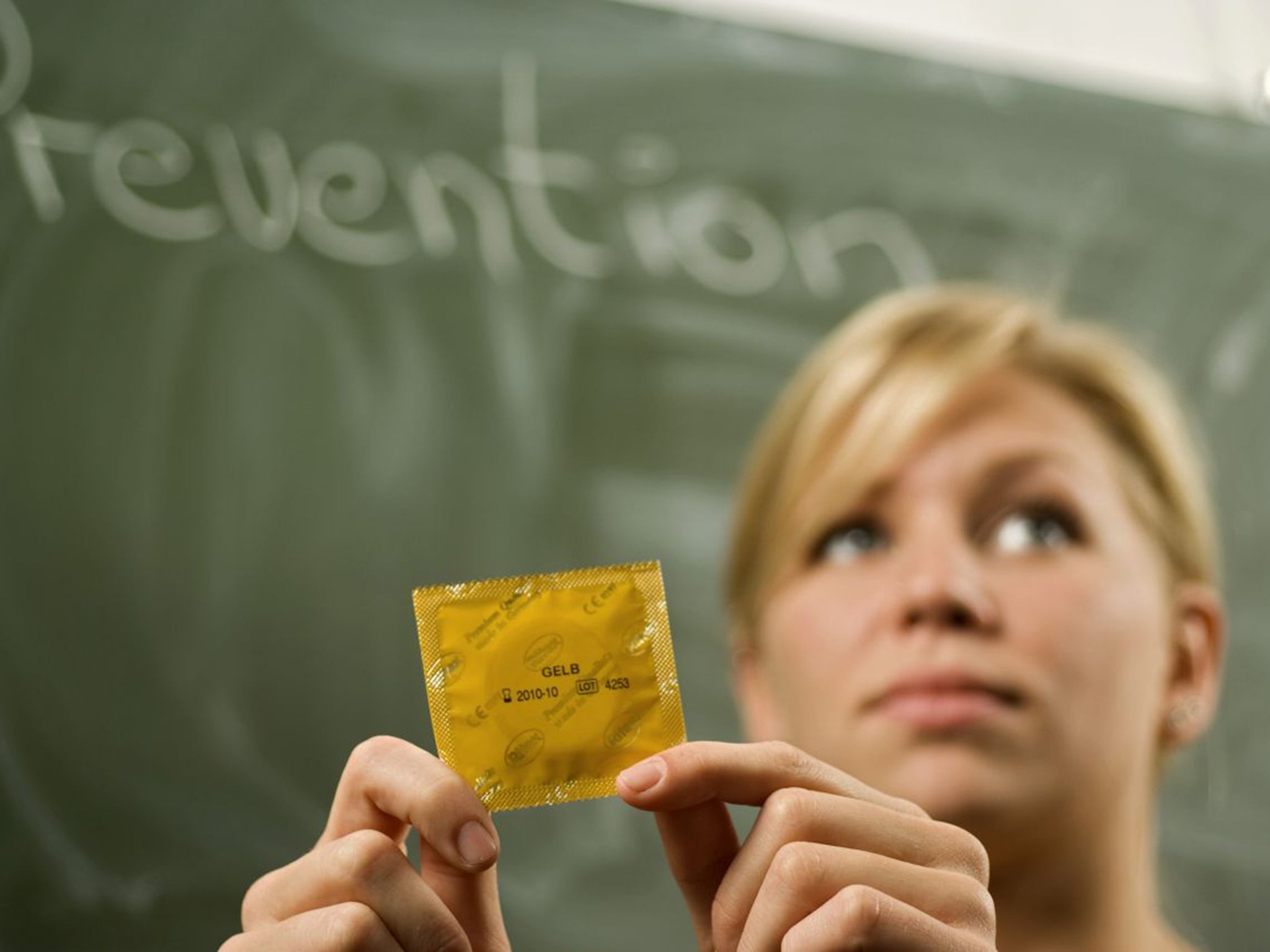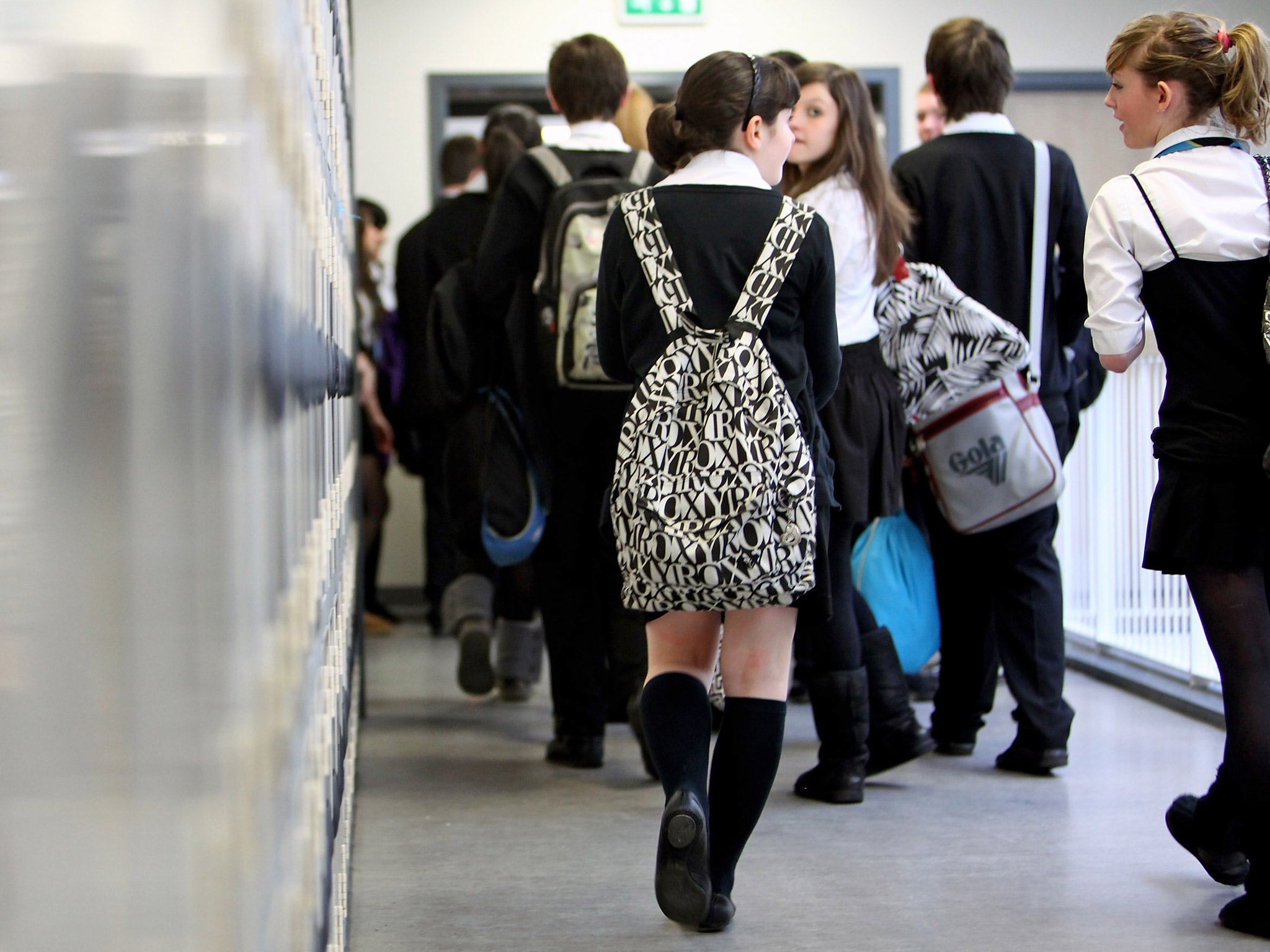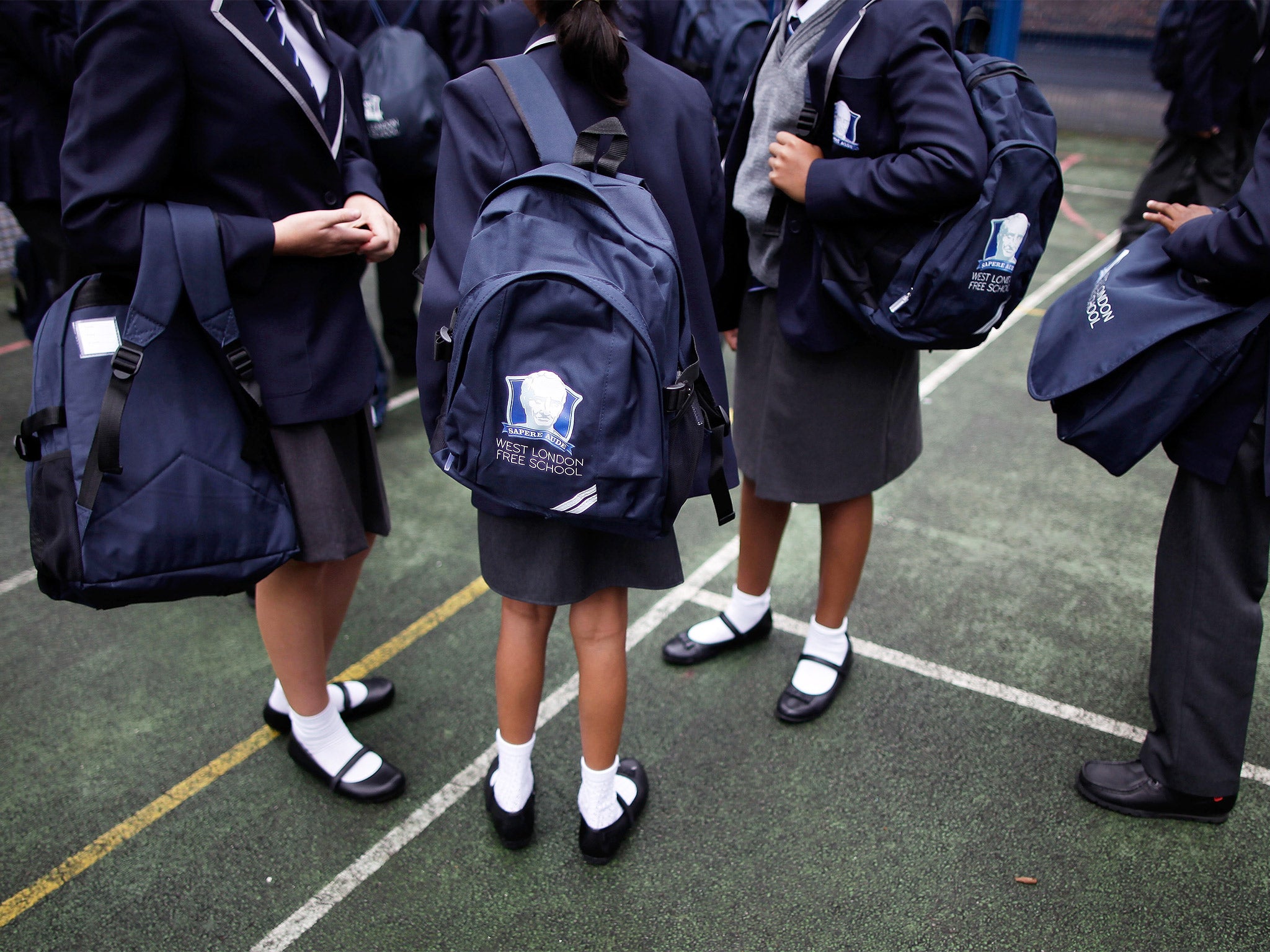Sex education: Tories snub puts teenagers at risk of ‘pregnancy, sexually transmitted diseases and exploitation’
Conservatives attacked over failure to make primary school lessons compulsory

The Conservatives have been accused of putting children’s health at risk by refusing to make sex and relationships education compulsory in primary schools. The quality of sex education is worsening – putting teenagers at risk of pregnancy, sexually transmitted infections and exploitation – as ministers put the objections of a “small but vocal minority of parents” over the views of most experts, according to MPs.
In a hard-hitting report, the Tory-dominated Commons education select committee today demands that sex lessons be made mandatory to allow more time to be devoted to the subject in schools.
Young people “have a right to information that will help keep them healthy, happy and safe”, they argue, saying the Government’s strategy for addressing the issue is “weak”.
Their concerns are echoed by the Office of the Children’s Commissioner, which said it was “worrying” that previous recommendations that PSHE (personal, social, health and economic education) should become a statutory component of the curriculum had not been adopted by ministers. Sue Berelowitz, deputy children’s commissioner, said: “We are calling for age-appropriate relationships and sex education to be made a statutory component of the curriculum. Young people need to understand what are and what are not healthy relationships.”
The issue has become increasingly politicised, with both Labour and the Liberal Democrats pledging to give the subject statutory status.

Graham Stuart, the Conservative chairman of the Education Committee, added: “There is an overwhelming demand for statutory sex and relationships education (SRE) – from teachers, parents and young people themselves.
“SRE forms an important part of any school’s efforts to safeguard young people from abuse and is particularly needed to protect the most vulnerable children. PSHE builds character and resilience and will help young people to live happy and healthy lives.”
The MPs’ report concludes: “Better PSHE and SRE has the potential to help efforts to address many ‘problems’ in society, including teenage pregnancy, STI rates, drug and alcohol abuse, cyber bullying and child exploitation.”
Christine Blower, general secretary of the National Union of Teachers, said the report had “dealt another blow to the Government’s laissez-faire approach to education provision”.
The MPs’ report reveals that PSHE lessons require improvement in 40 per cent of schools, adding: “The situation appears to have worsened over time and young people consistently report that the SRE they receive is inadequate. This situation would not be tolerated in other subjects.” It continues: “There is a lack of clarity over the status of the subject. This must change and we accept the argument that statutory status is needed for PSHE with sex and relationships education as a core part of it.”
The MPs recommend the title of the lessons should be changed to “relationships and sex education” to stress the importance of learning about relationships.
They said at present advice was often given too late, quoting one girl as saying: “My school didn’t offer SRE classes until Year 11, when I was 15 going on 16, by which time I was pregnant.”
It added that there was “a small but vocal minority of parents” who argued strongly that PSHE and SRE should be the responsibility of parents rather than the state. “It is clear that a larger majority of parents and young people feel that schools should provide SRE,” the report added.
The MPs said, though, the current right of parents to withdraw their children from lessons should be retained.
Lucy Emmerson, co-ordinator of the Sex Education Forum, said: “Support for statutory SRE has never been clearer: nine out of 10 students back legislative change and more than three-quarters of parents want primary schools to teach about the difference between safe and unwanted touch and how to speak up if someone treats them inappropriately.” Tristram Hunt, Labour’s shadow Education Secretary added: “Labour will make age-appropriate sex and relationship education compulsory in all state schools.”
A spokeswoman for the Department for Education said: “We want to see all young people leave school prepared for life in modern Britain. This means not only ensuring that young people receive a rigorous academic education but also helping them to develop personal wellbeing.

“High-quality PSHE teaching has a vital role to play in this, giving young people a better understanding of the society around them and supporting them to make informed choices and stay safe.
“That’s why we are working to ensure the PSHE and relationships education that young people receive is appropriate and of a high standard.”
The birds and the bees who teaches what
At present, primary schools are not required to cover sex and relationships education (SRE) beyond what is covered in the national curriculum for science.
However, the Department for Education recommends “all primary schools should have an SRE education programme tailored to the age and the physical and emotional maturity of the children”. Maintained secondary schools must cover sexually transmitted diseases as part of the science curriculum for 14- to 16-year-olds. Academies are not required to provide SRE.
The picture abroad is mixed. Austria introduced sex education in primary schools with topics including differences between sexes, pregnancy, puberty and physical changes. In Belgium, sex education is mandatory but schools have autonomy on what they teach.
In Denmark, sex education has been mandatory since 1970. Greece’s mandatory sex education, taught by teachers, nurses and health organisations, focuses on biological and relationship aspects.
In Ireland, it became mandatory in 2003, with parents having the right to remove their children from lessons. In Italy, the curriculum focuses on biology. In Spain, sex education is mandatory but schools are able to decide how they teach the syllabus.
Join our commenting forum
Join thought-provoking conversations, follow other Independent readers and see their replies
Comments